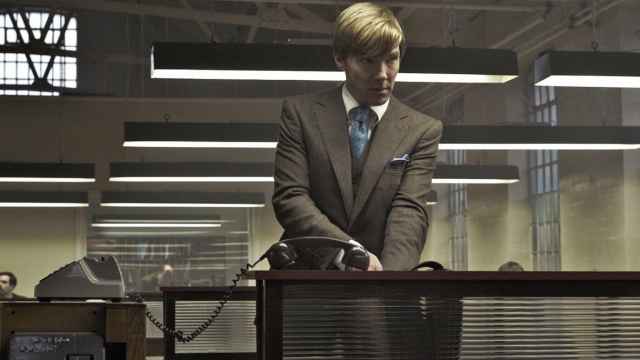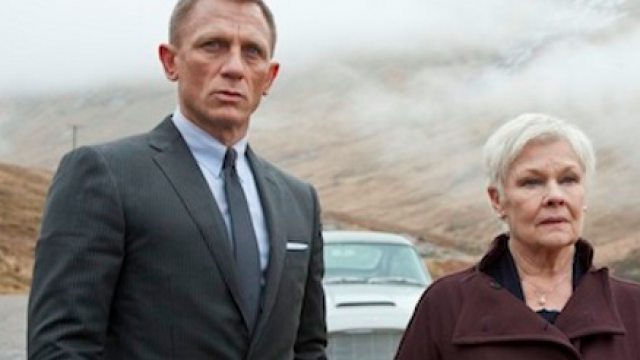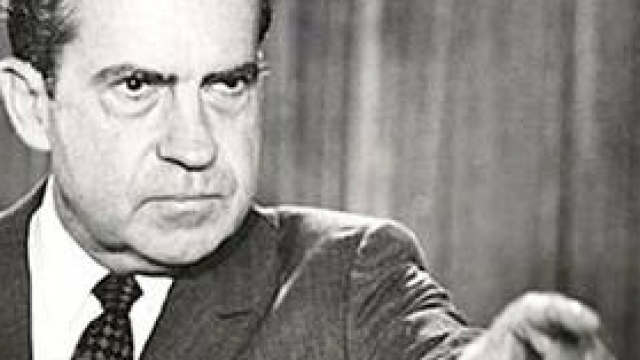It’s “Historical Epics With a Side of Groundhog”
this week on Russian TV, as Peter the Great, the Decembrists, Emelyan Pugachyov
and Winston Churchill line up to entertain and educate local viewers – and Bill
Murray interrupts things with a round-the-clock comedy everybody loves every
year. Here’s the where and when:
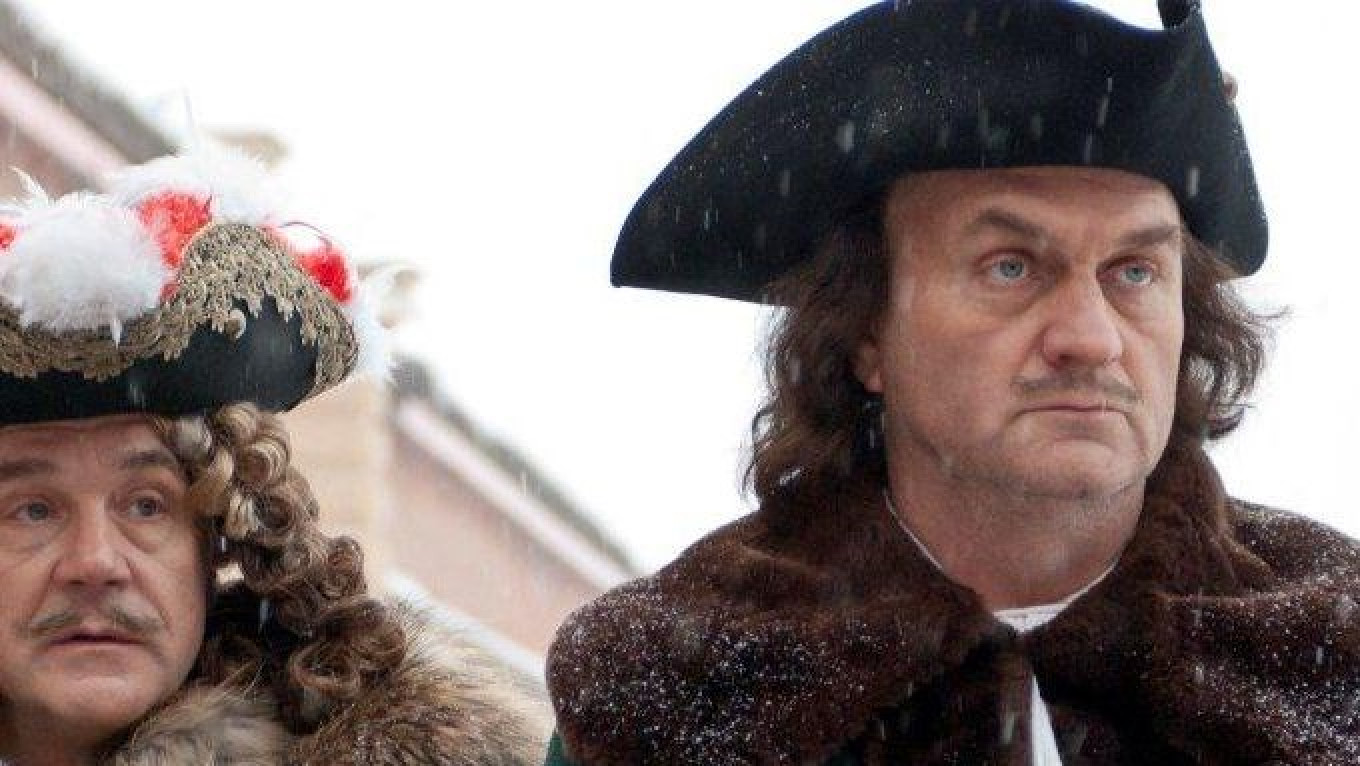
Kultura starts
the week’s array of bigtime historical-costumers with “Peter the Great: Last Will
and Testament” (2011), a much-trumpeted big-budget four-part serial that came
close to living up to its hype. Scenarist/director Vladimir Bortko did a
creditable job both of adapting Daniil Granin’s “Evenings with Peter the Great”
for the screen and getting good work out of his cast – especially Alexander
Baluyev as the hugest tsar – ever – and Sergei Makovetsky as the devious but
invaluable Menshikov. There is a little fooling around with the historical
record here (there usually is in these things) but the dynastic tensions of the
final two years of Peter’s life are nicely captured and make for good drama. Also,
Yelizaveta Boyarskaya as Maria Kantemir is extremely easy to look at. That said,
the whole thing still works rather better for local audiences than
non-Russians: “Peter” scores a very solid 7.4/10 on KinoPoisk, but a far more
modest 6.2/10 on the English-language IMDb site. Ponder this difference as you
watch during the week, since it will likely be decades before somebody’s
sociology dissertation tells us why.
Peter the Great: Last Will and Testament Петр Первый. Завещание. Kultura,
Monday through Thursday at 3:10 p.m. and 9:30 p.m.
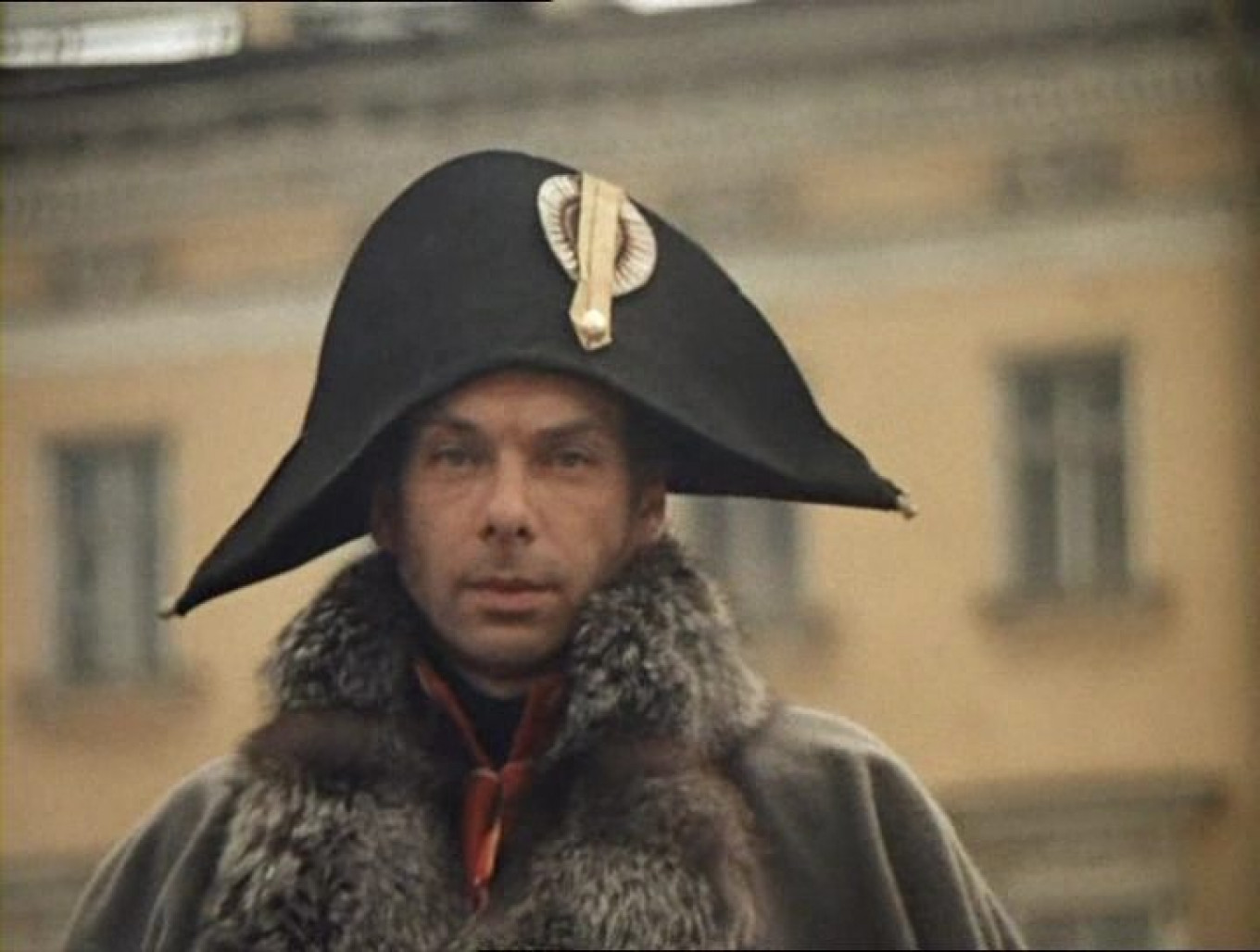
On Tuesday the Rodnoye Kino channel moves us forward a
century with “The Star of Captivating Happiness” (1975),
a major Soviet historical drama that was, all things considered, a major
success. This is a sort of “Gone with the Wind” for the Decembrists, the
noblemen-conspirators who failed in a plot to prevent Nicholas I from taking-keeping
the throne in 1825. “Star” features one of the
great casts of its era – including Alexei Batalov, Irina Kupchenko, Innokenty
Smoktunovsky, Natalya Bondarchuk, Vasily Livanov, Oleg Yankovsky and Bulat
Okudzhava (who also wrote the songs) – and the great line-up is used wisely,
for the most part, by director/co-screenwriter Vladimir Motyl.
But: while the film did great box office in the ‘70s and remains extremely popular
today (8.1/10 on KinoPoisk), there is something slightly odd about it. The
Soviet state, for obvious reasons, had a hard time completely digesting the
Decembrists, who were Good Guys – but couldn’t be too good, since they were (a)
mostly a bunch of feckless aristocrats and, even more unsettling, (b) intent on
overthrowing an unelected and oppressive regime. Ahem. The Lenfilm solution was
to orient the movie towards the Decembrists wives and various “timeless issues
of love, betrayal and honor.” So while “Star” not exactly a three-hour
chick-flick (Annenkova: “How could my rake of a son find such a jewel of a
woman? Even if she is French!”), there is a sort of “necessary imbalance” built
into it.
One US reviewer described “Star” as “well-acted” and
“fast-paced,” rating it “highly recommended” – which is either two-thirds right
or, if your cinematic pacing clock is set to Andrei Tarkovsky Time, exactly
right. The short version: buckle up first, but definitely tune in.
The Star of Captivating Happiness Звезда пленительного счастья. Rodnoe Kino, Tuesday at 2:20 p.m. (part 1) and 3:40 p.m. (part 2)
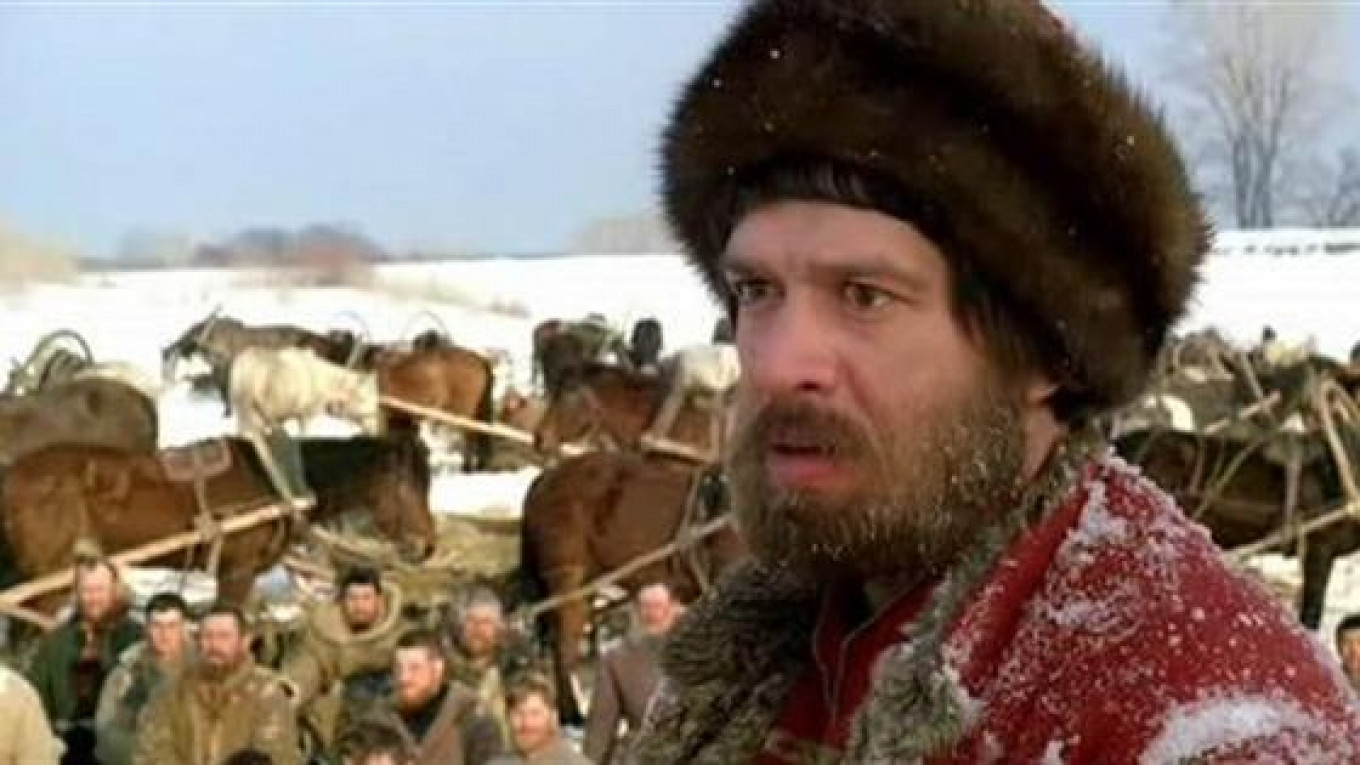
On Wednesday the revolting Russians on your small screen go back a century and a half before the Decembrists and push the nesting gentry firmly aside in the Franco-Russian blockbuster “The Pugachyov Rebellion” (1999). The agenda for making this movie was simple enough: Director Alexander Proshkin and three writers reworked Pushkin’s “The Captain’s Daughter” for the screenplay, mixing some of the poet’s “History of the Pugachyov Rebellion” in with it; the producers got a good and intimidating actor to play Evil Emelyan (Vladimir Mashkov); the crew went off to shoot on location in “the endless steppes of the Urals” – et voilà, an instant epic for the Pushkin Bicentennial.
What actually got onto celluloid, in the end, was exciting and engaging in places, less so in others and a head-scratcher for critics and the public. “Pugachyov” didn’t make as big a splash (or as many rubles) as its sponsors and producers had hoped, but it was a creditable effort at putting a good chunk of Pushkin’s historical prose before a post-Soviet audience that was losing touch with it – and still is. Tune in and let Mashkov remind you that there’s much more to the poet’s legacy than the intelligentsia foibles of Yevgeny Onegin.
The Pugachyov Rebellion Русский бунт. Rodnoye Kino, Wednesday at 1:25 p.m.
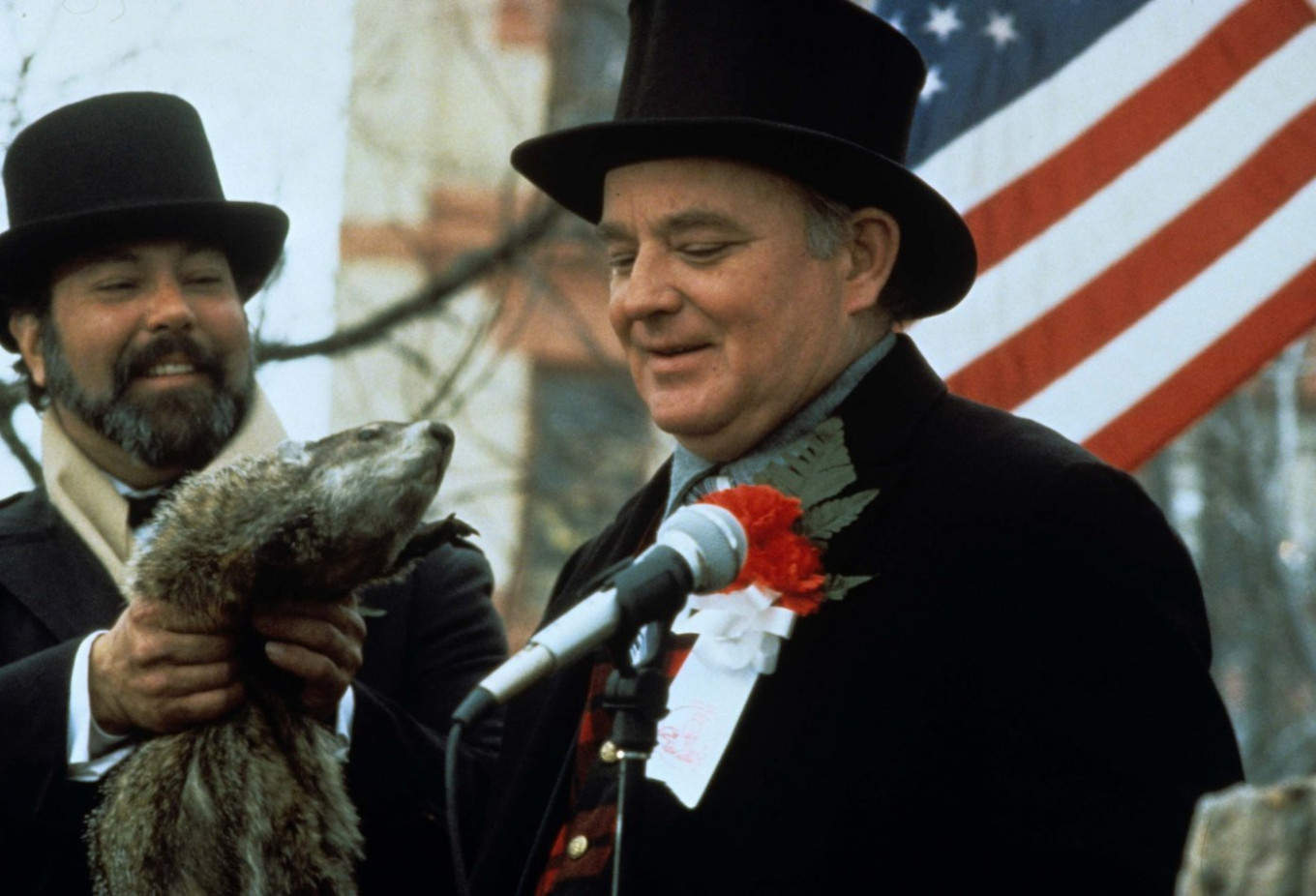
On Thursday TV 1000 interrupts our historical parade to celebrate the curious American holiday that falls February 2 as it should be celebrated: for Groundhog Day we should all repeatedly watch "Groundhog Day" (1993) until we finally get it right. Yes, starting at 6:10 a.m. and repeating continuously every two hours through 4:10 Friday morning, Bill Murray will play a cynical, egocentric TV weatherman who can’t stop repeating February 2 – or win the heart and hand of his producer (Andie McDowell) – until he remakes himself into a genuinely good and decent human being. This Harold Ramis/Danny Rubin classic is a comedy that neither Russians nor Americans ever tire of – and likely never will, given the chances of genuine decency overwhelming either us. Anyway, tune in. And tune in. And tune in…
Groundhog Day День сурка. TV1000, Thursday-Friday at 6:10 a.m., 8:10 a.m., 10:10 a.m., 12:10 p.m., 2:10 p.m., 4:10 p.m., 6:10 p.m., 8:10 p.m., 10:10 p.m., 12:10 a.m., 2:10 a.m. and 4:10 a.m.
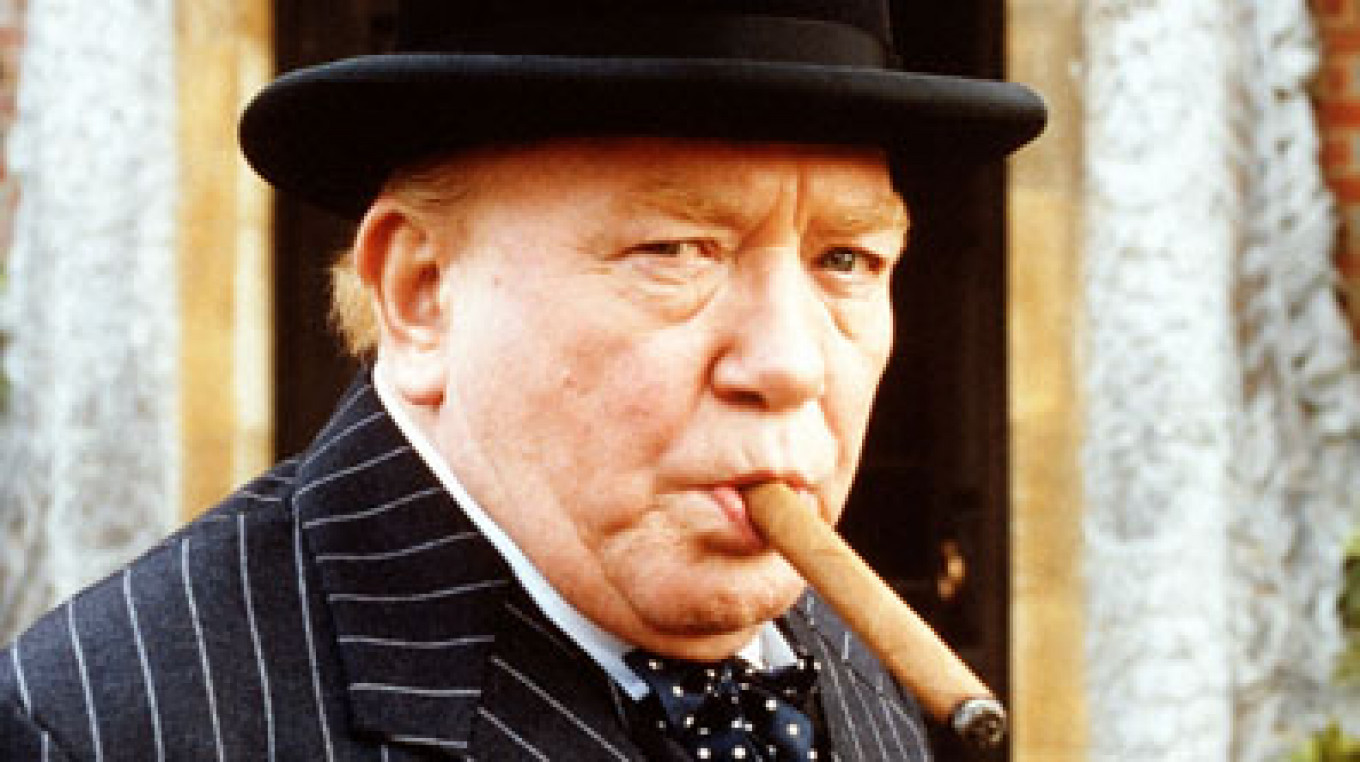
On Friday the A1 channel cranks up the Wayback Machine
again, this time for a shorter trip and an outstanding made-for-TV movie. “The
Gathering Storm” is a story of Winston Churchill’s “lost years” during the
1930s, with the out-of-office statesman as a voice crying in the wilderness:
Germany is re-arming, fascism and militarism are on the rise around the world, and
nobody in Britain wants to hear about it. At the same time Churchill’s own
“home front” is in crisis, as he and wife Clementime push the boundaries of
their marriage – and the marriage pushes back.
Albert Finney and Vanessa Redgrave are simply marvelous as the principals of
this unusual love story, and the movie itself brought home a bumper crop of
awards (two Golden Globes plus another 19 wins and 31 nominations). Yes, there
are some minor historical inaccuracies; but they are just that, minor, and
don’t detract from the film’s essence or success. Tune in and be impressed: this
is a He said/She said story whose He and She deserve great actors and a great
script – and get both. So the point of this TV week is proven once again: history
can be very watchable indeed.
The Gathering Storm Черчилль. A1, Friday at
7:45 a.m.
Mark H. Teeter is the editor
of Moscow TV Tonite on Facebook.
A Message from The Moscow Times:
Dear readers,
We are facing unprecedented challenges. Russia's Prosecutor General's Office has designated The Moscow Times as an "undesirable" organization, criminalizing our work and putting our staff at risk of prosecution. This follows our earlier unjust labeling as a "foreign agent."
These actions are direct attempts to silence independent journalism in Russia. The authorities claim our work "discredits the decisions of the Russian leadership." We see things differently: we strive to provide accurate, unbiased reporting on Russia.
We, the journalists of The Moscow Times, refuse to be silenced. But to continue our work, we need your help.
Your support, no matter how small, makes a world of difference. If you can, please support us monthly starting from just $2. It's quick to set up, and every contribution makes a significant impact.
By supporting The Moscow Times, you're defending open, independent journalism in the face of repression. Thank you for standing with us.
Remind me later.




